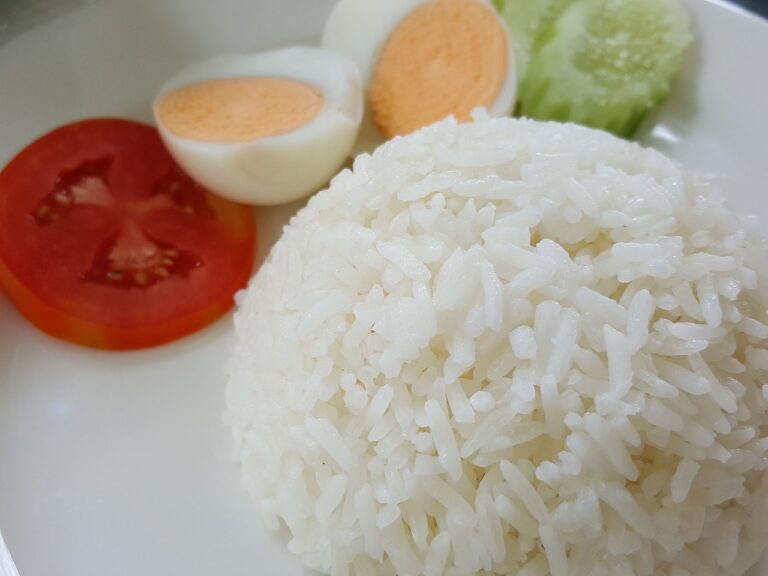10 Interesting Reasons Why You Are Craving Vegetables

In today’s health-conscious world, more and more individuals report experiencing a craving for vegetables. Far from just a fleeting fancy, these cravings can be intense and persistent, leading some to wonder what’s behind this newfound obsession with greens. This article explores the phenomena of vegetable cravings and offers ten reasons to explain why so many are yearning for these nutrient-dense foods.
Why Am I Craving Vegetables?
1. Nutritional Deficiencies
Our bodies are adept at recognizing what they need. When we crave vegetables, it might be because our bodies are signaling a need for specific nutrients found in those veggies.
For example, if you find yourself craving dark leafy greens, your body might be in need of more calcium or iron. Vegetables are packed with vitamins, minerals, and antioxidants. When we neglect certain nutrients, our bodies can communicate that need through cravings, pushing us towards foods that can address those deficiencies.
2. Alkalizing Effect
Vegetables have an alkalizing effect on the body, helping to maintain a balanced pH level. An acidic environment can lead to various health problems, and by craving vegetables, our bodies might be seeking balance.
Consistently consuming processed foods, sugars, and meats can make our internal environment more acidic. Vegetables counteract this effect. When we crave them, it might be our body’s way of seeking that pH equilibrium.
3. Dietary Fiber Needs
A diet rich in vegetables provides the necessary dietary fiber that aids in digestion and promotes gut health.
Regular intake of fiber is essential for preventing constipation and promoting regular bowel movements. Vegetables, being a prime source of fiber, can be craved when the body feels the need to aid its digestive processes and ensure gut health is maintained.
4. Natural Sugar Balance
Unlike processed sweets that cause sugar spikes, vegetables offer a balanced release of natural sugars. When we crave them, it might be an indication of the body seeking a more sustained energy source.
Moreover, vegetables like sweet potatoes, beets, and carrots provide a subtle sweetness that can satiate our sugar cravings in a healthier way. They offer the pleasure of sweetness without the detrimental effects of refined sugars.
5. Emotional Comfort
Beyond just physical needs, vegetables can also provide emotional comfort. Many people associate certain veggies with comforting memories or feelings of well-being.
For some, a bowl of steamed broccoli or a fresh salad might bring back memories of family dinners or other positive associations. These emotional ties can lead to cravings as our mind seeks comfort and familiarity in food.
6. Weight Management
Vegetables are low in calories and high in nutrients, making them an ideal food choice for those looking to manage their weight.
Craving vegetables can be a subconscious push towards foods that fill us up without adding excessive calories. This can especially be true for individuals who are actively trying to lose or maintain their weight and have experienced the satiating power of veggies.
7. Detoxification Process
Our bodies naturally detoxify themselves, and vegetables play a significant role in this process. Many greens are rich in compounds that support liver function and promote the removal of toxins.
When feeling sluggish or after consuming a lot of processed foods, one might crave vegetables as a way to assist the body in its natural detoxification process. It’s the body’s way of seeking support in cleansing and rejuvenation.
8. Hydration Levels
Many vegetables have high water content, which can help with hydration. Foods like cucumbers, zucchinis, and bell peppers are over 90% water.
In situations where one is mildly dehydrated, craving these water-rich vegetables might be a body’s way of seeking additional hydration sources, especially in warmer climates or after vigorous activities.
9. Immune System Boost
The vitamins and minerals found in vegetables play a crucial role in supporting our immune system. Vitamin C, found in bell peppers, broccoli, and Brussels sprouts, for example, is essential for immune function.
During times when one might feel under the weather or during flu season, a craving for vegetables can be the body’s proactive approach to fortify its defenses.
10. Hormonal Changes
Certain phases in life, especially for women, like menstruation, pregnancy, or menopause, can come with specific nutritional needs. Vegetables, being nutrient powerhouses, can cater to these demands.
During these phases, one might experience increased cravings for vegetables as the body seeks to support hormonal changes and balance through nutrition.
Craving Cruciferous Vegetables
Craving cruciferous vegetables such as broccoli, cauliflower, and Brussels sprouts can indicate a body’s need for detoxification and antioxidants. These vegetables are rich in vitamins C and K, fiber, and sulforaphane, which support liver function and cellular repair. They may also signal a desire for compounds that help balance hormones and reduce inflammation.
Including these in your diet can significantly enhance overall health, support the immune system, and potentially lower the risk of chronic diseases. The body’s intuitive push for these nutrient-dense foods reflects an underlying demand for specific nutritional benefits that cruciferous vegetables provide. Incorporating them into meals not only satisfies the craving but also contributes to a balanced and healthful eating pattern.
Craving Crunchy Vegetables
Craving crunchy vegetables like carrots, celery, and bell peppers often reflects a desire for a satisfying texture and a need for hydration. These vegetables are not only water-rich, helping to quench thirst and maintain hydration, but they also offer a fibrous crunch that can be psychologically satisfying. The act of crunching can relieve stress and provide a sensory experience that softer foods cannot.
This craving might also hint at the body’s need for more fiber, which is essential for digestive health and can aid in weight management. Crunchy vegetables are packed with vitamins and minerals, promoting overall wellness and satisfying the body’s nutritional demands. By indulging in these healthy snacks, individuals can satisfy their cravings while supporting their physical health and emotional well-being.
Craving For Green Leafy Vegetables
Craving for green leafy vegetables such as spinach, kale, and swiss chard often signifies the body’s need for minerals like iron, magnesium, and calcium. These nutrients are crucial for energy production, muscle function, and bone health. Green leafy vegetables are also high in folate, which is important for DNA synthesis and repair, making them particularly beneficial for pregnant women or those looking to boost their fertility.
The body might be signaling a deficiency in these essential nutrients or a desire for the detoxifying and anti-inflammatory effects that these vegetables provide. Including green leafy vegetables in one’s diet can improve overall health, enhance vitality, and support the body’s natural detoxification processes. Their high vitamin K content is also vital for blood clotting and bone health, making them an important component of a balanced diet.
Craving For Vegetables During Pregnancy
Craving for vegetables during pregnancy is a common phenomenon that indicates the body’s increased demand for vitamins, minerals, and fiber to support both the mother and the developing fetus. Pregnant women may particularly crave vegetables as their bodies need more nutrients like folic acid, which is critical for preventing neural tube defects, and iron, which supports blood volume expansion. Vegetables are also rich in fiber, which can help alleviate pregnancy-related constipation and promote digestive health.
This craving is a natural way for the body to ensure the intake of a variety of nutrients essential for fetal development and maternal health. Eating a diverse range of vegetables can help meet the increased nutritional requirements during pregnancy, providing antioxidants that protect cells from damage and support the immune system. By listening to these cravings, pregnant women can naturally gravitate towards foods that fulfill their nutritional needs, promoting a healthy pregnancy outcome.
Craving Orange Vegetables
Craving orange vegetables like carrots, sweet potatoes, and pumpkins often signals the body’s need for beta-carotene and other carotenoids, which are precursors to vitamin A. This essential vitamin supports eye health, skin health, and the immune system. Orange vegetables are also rich in antioxidants that fight free radicals, reducing the risk of chronic diseases.
The body’s desire for these nutrient-dense foods can be an intuitive push towards improving overall health and well-being. Including orange vegetables in the diet can enhance vision, promote skin health, and boost the immune system. Satisfying this craving not only brings culinary variety but also significant health benefits, making it a win-win for both palate and physical health.
Craving Pickled Vegetables
Craving pickled vegetables can indicate a desire for both the unique taste and the probiotic benefits these foods offer. The tangy flavor of pickled vegetables can satisfy a craving for something acidic or salty, which might be the body’s way of seeking electrolyte balance. Additionally, fermented vegetables provide probiotics that support gut health, enhancing digestion and the immune system.
This craving might also reflect the body’s need for more variety in textures and flavors in the diet, encouraging the intake of foods that are both nutritious and enjoyable. Pickled vegetables can be a great way to add interest to meals and snacks while also providing health benefits. By incorporating them into the diet, individuals can satisfy their cravings and support their digestive health simultaneously.
Craving Red Vegetables
Craving red vegetables such as tomatoes, red peppers, and beets often reflects the body’s need for antioxidants, particularly lycopene and anthocyanins. These compounds are known for their heart health benefits and their ability to reduce inflammation. Red vegetables are also rich in vitamins and minerals that support overall health, including vitamin C, potassium, and folate.
The desire for these colorful foods can signify the body’s intuitive search for nutrients that protect against disease and support healthy bodily functions. Eating red vegetables can improve heart health, enhance immune function, and provide a wealth of nutrients that promote overall wellness. Satisfying these cravings not only adds vibrant colors to meals but also contributes to a nutrient-rich diet that supports long-term health.
Craving Root Vegetables
Craving root vegetables like potatoes, carrots, and beets can signal the body’s need for grounding, energy-rich foods. These vegetables are packed with complex carbohydrates, fiber, and essential nutrients like potassium and vitamin C, which provide sustained energy and support healthy bodily functions. Root vegetables also contain antioxidants that help fight inflammation and support the immune system.
The craving for these earthy, satisfying foods might also reflect a need for comfort or a desire for foods that provide a sense of fullness and satisfaction. Including root vegetables in the diet can help satisfy hunger, boost energy levels, and provide a range of nutrients essential for health. They are versatile in cooking, offering a comforting and nutritious option for those looking to satisfy their cravings in a healthy way.
Craving Vegetable Juice
Craving vegetable juice can be a sign that the body is seeking a quick and efficient way to absorb a variety of nutrients. Vegetable juices are packed with vitamins, minerals, and antioxidants that support overall health, detoxification, and hydration. This craving may also indicate a need for hydration, as juices are high in water content.
Turning to vegetable juice can be a convenient way to increase vegetable intake, especially for those who may struggle to consume enough whole vegetables throughout the day. It can also provide a refreshing and energizing boost, offering a concentrated source of nutrients that can help meet daily dietary needs. By indulging in vegetable juice, individuals can satisfy their cravings while supporting their health and well-being.
Craving Vegetable Soup
Craving vegetable soup can indicate a need for warmth, comfort, and a diverse intake of nutrients. Vegetable soup, with its mix of vegetables, provides a broad spectrum of vitamins, minerals, and fiber, all in a hydrating broth that can soothe the soul and the body. This craving might also point to the body’s desire for easily digestible foods, as the cooking process breaks down the vegetables’ cell walls, making the nutrients more accessible.
Vegetable soup can be particularly appealing for its comforting and nourishing qualities, making it a go-to choice for those seeking both physical and emotional satisfaction from their meals. It’s a way to hydrate, satisfy hunger, and consume a variety of nutrients all at once. By giving in to this craving, individuals can enjoy a meal that is not only fulfilling but also rich in health-promoting ingredients.
Craving Vegetables When Sick
Craving vegetables when sick is a natural response of the body seeking nutrients to support the immune system and speed up recovery. Vegetables are rich in vitamins, minerals, and antioxidants that can help fight off infection and reduce inflammation. This craving may also be due to the body’s need for light, easily digestible foods that don’t burden the digestive system.
Eating vegetables during illness can provide essential nutrients without overloading the stomach, offering a comforting and healing option. The high water content in vegetables also helps with hydration, which is crucial for recovery. By listening to this craving, individuals can support their body’s healing process, ensuring a quicker return to health.
Sudden Craving For Vegetables
A sudden craving for vegetables can be the body’s way of signaling a need for more nutrients, fiber, and hydration. This may occur when the diet has been lacking in diversity or leaning too heavily on processed foods, prompting the body to seek a balance. Vegetables are packed with essential vitamins, minerals, and antioxidants that support overall health, immune function, and digestion.
Turning to vegetables can help correct nutritional imbalances, detoxify the body, and provide a sense of well-being. It may also indicate a subconscious desire for a healthier lifestyle or a more balanced diet. By responding to this craving, individuals can enjoy a variety of health benefits, including improved energy levels, better digestive health, and enhanced nutrient intake.
Conclusion
Craving vegetables is more than just a whim; it’s often a message from our body. Understanding the reasons behind these cravings can empower individuals to make mindful and healthful food choices. Whether it’s a need for specific nutrients, an emotional connection, or a way to manage weight, vegetables consistently prove to be not only nutritious but also essential for overall well-being.






